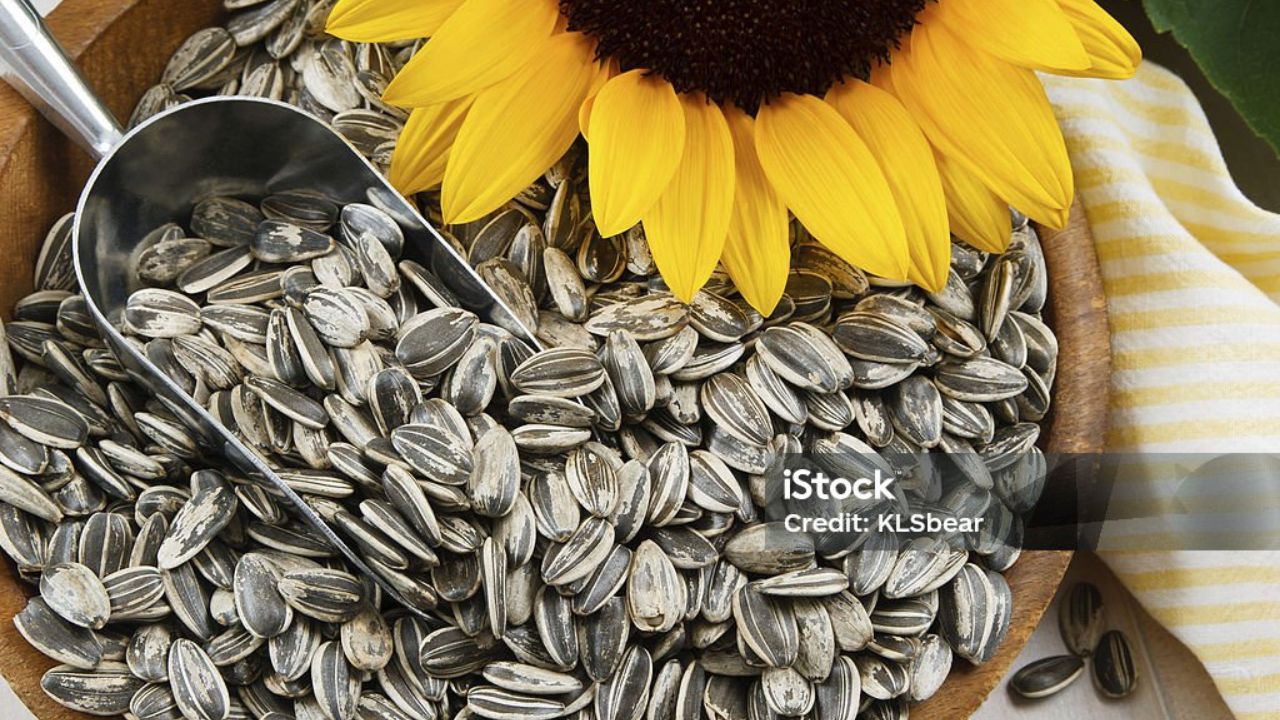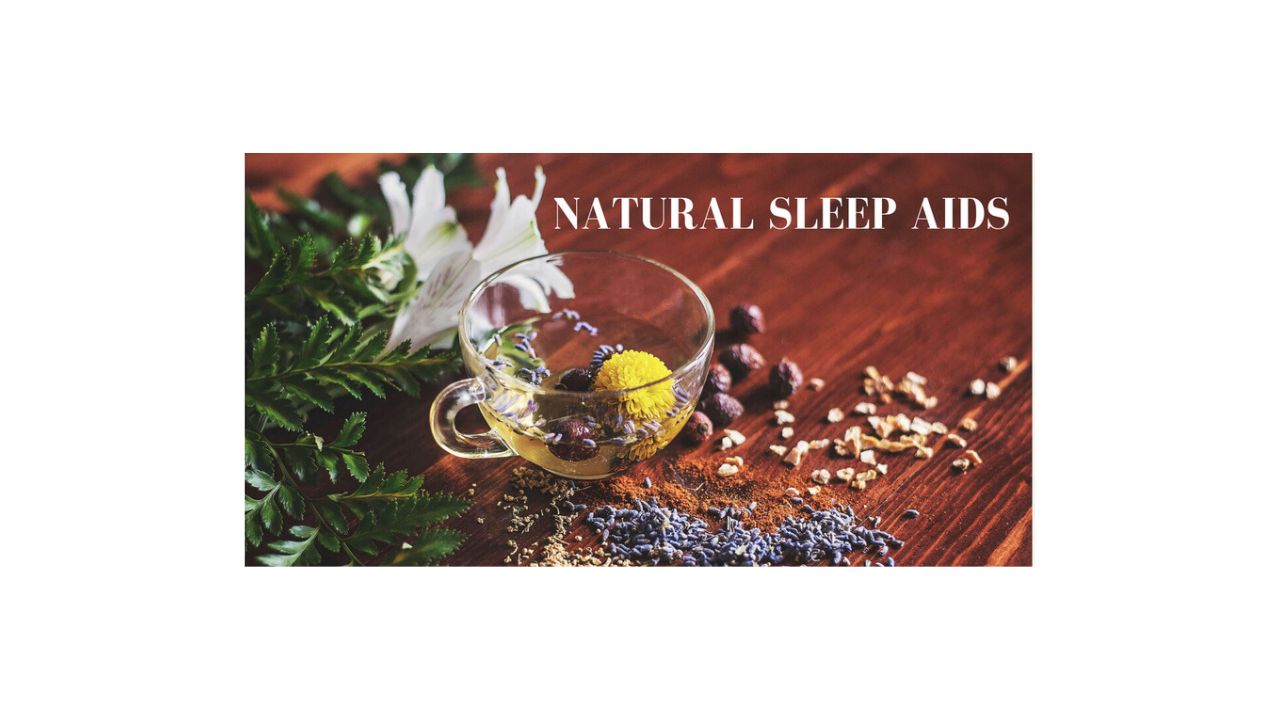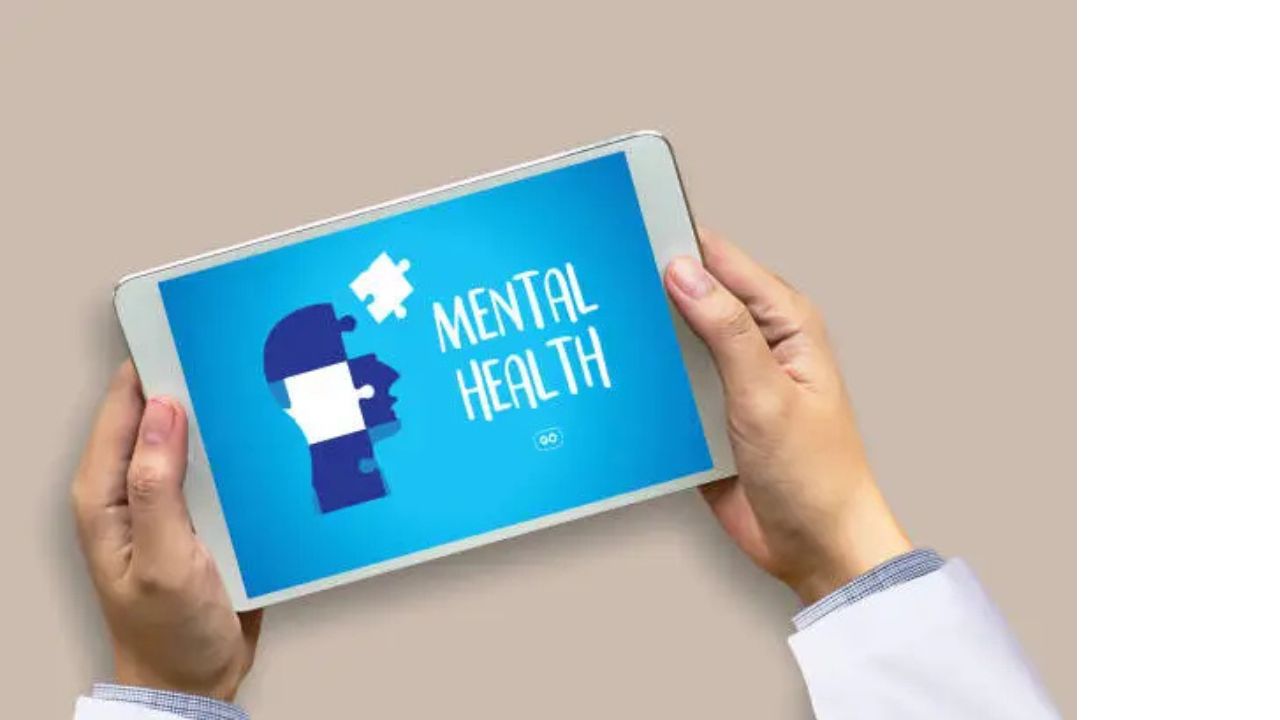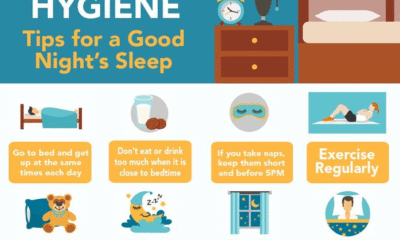HEALTH
Benefits of Sunflower Seeds: A Tiny Snack with Huge Health Power

Sunflower seeds are more than just a crunchy snack — they’re a powerhouse of nutrients that can transform your health when added to your daily diet. From boosting heart health to improving skin glow, the benefits of sunflower seeds are both impressive and scientifically backed.
🥗 What Are Sunflower Seeds?
Sunflower seeds come from the large flower heads of the sunflower plant (Helianthus annuus). Each sunflower head can yield hundreds of seeds, which are often roasted, salted, or eaten raw. These seeds are rich in healthy fats, vitamins, and minerals, making them an excellent addition to your diet.
🌿 Top 10 Health Benefits of Sunflower Seeds
1. Rich Source of Healthy Fats
Sunflower seeds contain monounsaturated and polyunsaturated fats, which help reduce bad cholesterol levels and promote heart health. These healthy fats also keep your energy levels steady throughout the day.
2. Boosts Heart Health
Packed with vitamin E, magnesium, and selenium, sunflower seeds protect against heart disease by reducing inflammation and oxidative stress. Regular consumption can improve circulation and support overall cardiovascular function.
3. Supports Weight Management
Despite being calorie-dense, sunflower seeds can help with weight control. Their protein and fiber content keeps you full longer, reducing the urge to snack on unhealthy foods.
4. Improves Skin Health
The high vitamin E content in sunflower seeds acts as an antioxidant that protects your skin from UV damage and premature aging. It also promotes smooth, glowing skin.
5. Enhances Immune Function
Sunflower seeds are rich in zinc and selenium, two essential minerals that strengthen your immune system and help your body fight infections effectively.
6. Reduces Inflammation
The antioxidants and healthy fats found in sunflower seeds help lower chronic inflammation, which is linked to many health issues like arthritis and diabetes.
7. Promotes Healthy Hair Growth
Thanks to nutrients like biotin, zinc, and vitamin B6, sunflower seeds can support strong, healthy hair growth and reduce hair fall.
8. Improves Mood and Mental Health
Sunflower seeds contain tryptophan, an amino acid that helps your body produce serotonin — the “happy hormone.” This makes them a natural mood booster and stress reliever.
9. Supports Bone Health
With minerals like magnesium, phosphorus, and copper, sunflower seeds play a key role in maintaining strong bones and preventing conditions like osteoporosis.
10. Balances Blood Sugar Levels
Eating sunflower seeds can help stabilize blood sugar, thanks to their high fiber and protein content. They slow down sugar absorption, making them great for people managing diabetes.
🥣 How to Eat Sunflower Seeds
You can enjoy sunflower seeds in many ways:
-
Sprinkle them on salads or yogurt.
-
Mix them into smoothies for extra protein.
-
Add them to granola bars or trail mix.
-
Use them as a crunchy topping on baked goods.
For best results, choose unsalted and roasted sunflower seeds or raw versions without added oils.
⚠️ Possible Side Effects
While sunflower seeds are healthy, moderation is key. Eating too many can increase calorie intake and sodium levels (if salted). People with nut allergies should also be cautious.
🌞 Final Thoughts
The benefits of sunflower seeds make them one of nature’s most underrated superfoods. Adding a small handful to your diet every day can boost your energy, improve heart health, and support radiant skin — all while giving you a satisfying crunch!
HEALTH
Natural Relief for Sleep Problems in Adults | Best Home Remedies

In today’s busy world, sleep problems in adults have become increasingly common. From r racing thoughts at night to waking up feeling unrested, millions struggle to get enough quality sleep. Instead of relying on sleeping pills, many people now prefer natural relief for sleep problems in adults — safe, effective, and free from side effects.
This article explores the top natural remedies, causes, and proven lifestyle tips to help you enjoy deeper, more restful sleep.
😴 Understanding Sleep Problems in Adults
Before finding a solution, it’s important to understand why sleep issues happen. The most common types include:
-
Insomnia – Difficulty falling or staying asleep.
-
Restless sleep –Frequent tossing and turning.
-
Early waking – Waking up too soon and being unable to fall back asleep.
Common causes of sleep problems:
-
Stress or anxiety
-
Poor sleep habits (late-night screen time, irregular schedule)
-
Caffeine or alcohol consumption before bed
-
Hormonal changes
-
Medical conditions such as sleep apnea or thyroid issues
Identifying the cause is the first step toward natural relief.
🌿 Best Natural Relief for Sleep Problems in Adults
Below are the most effective natural ways to improve sleep quality — all backed by science and real-life results.
1. Herbal Teas and Natural Sleep Aids
Certain herbs and plants have calming effects that promote relaxation and better sleep.
✅ Best herbal options:
-
Chamomile tea: Reduces anxiety and induces calmness.
-
Valerian root: Known for improving deep sleep and reducing restlessness.
-
Lavender: Helps calm the nervous system and improve sleep duration.
-
Lemon balm: Reduces mild insomnia symptoms and improves mood.
Tip: Drink a warm cup of herbal tea 30 minutes before bedtime for best results.
2. Magnesium-Rich Foods or Supplements
Magnesium supports muscle relaxation and helps the body produce melatonin — the sleep hormone.
🍌 Try magnesium-rich foods like:
-
Bananas
-
Almonds
-
Spinach
-
Avocados
-
Pumpkin seeds
If your diet lacks these, magnesium supplements (consult your doctor first) can help reduce nighttime restlessness and promote relaxation.
3. Aromatherapy for Deep Relaxation
Essential oils such as lavender, cedarwood, and sandalwood can create a calming sleep environment.
💧 How to use them:
-
Add a few drops to a diffuser before bedtime.
-
Apply diluted oil to your pillow or wrists.
-
Take a warm bath with lavender oil for full-body relaxation.
Studies show that aromatherapy not only improves sleep but also reduces anxiety and stress naturally.
4. Create a Healthy Sleep Routine (Sleep Hygiene)
Your body thrives on consistency. A sleep routine trains your brain to recognize when it’s time to rest.
🕒 Tips for better sleep hygiene:
-
Go to bed and wake up at the same time daily.
-
Avoid screens (TV, phone) 1 hour before bed.
-
Keep your bedroom dark, cool, and quiet.
-
Avoid heavy meals and caffeine in the evening.
Small changes in daily habits can make a big difference in your sleep quality.
5. Mindfulness, Yoga, and Meditation
Mental stress is a top cause of sleep issues in adults. Practicing mindfulness or yoga before bed can calm your thoughts and body.
🧘 Try these:
-
Deep breathing exercises (inhale for 4 seconds, exhale for 6)
-
Guided meditation apps like Calm or Headspace
-
Gentle bedtime yoga stretches
These methods help lower cortisol (the stress hormone) and signal your body to wind down naturally.
6. Natural Sleep Supplements
If natural remedies aren’t enough, plant-based supplements can support better sleep without side effects.
🌿 Popular options include:
-
Melatonin: Helps regulate your sleep-wake cycle.
-
L-theanine: Found in green tea; promotes relaxation without drowsiness.
-
GABA: A calming neurotransmitter that helps the brain relax.
Always consult your healthcare provider before taking any new supplement.
🛌 Bonus: Sleep-Friendly Lifestyle Tips
-
Get morning sunlight exposure to reset your internal clock.
-
Exercise regularly (but not right before bed).
-
Limit naps to under 30 minutes.
-
Keep a sleep journal to track triggers and improvements.
Combining natural remedies with these healthy habits provides long-lasting relief for sleep problems in adults.
💬 When to See a Doctor
If you’ve tried natural methods and still struggle with sleep for more than 3 weeks, consult a doctor. Persistent insomnia or severe fatigue could indicate an underlying health issue that needs professional attention.
✅ Final Thoughts
Finding natural relief for sleep problems in adults doesn’t require pills or strong medications. With the right combination of herbal remedies, relaxation techniques, and healthy routines, you can achieve peaceful, restorative sleep — naturally.
Start small today: turn off your phone early, sip chamomile tea, breathe deeply, and let nature take care of the rest. 🌙
HEALTH
Heart Palpitation Symptoms, Causes, and Treatment

🫀 What Are Heart Palpitations?
Heart palpitations are sensations where your heart feels like it’s pounding, racing, fluttering, or beating irregularly. You might feel them in your chest, throat, or neck.
Palpitations can last from a few seconds to several minutes and often occur during stress, exercise, or rest.
Most heart palpitations are harmless and linked to lifestyle factors, but frequent or intense episodes could indicate a cardiac issue such as arrhythmia
⚠️ Common Symptoms of Heart Palpitations
Knowing the symptoms of heart palpitations helps you identify whether it’s a temporary issue or a sign of something more serious.
Typical symptoms include:
-
A fast or irregular heartbeat
-
Fluttering or pounding sensation in the chest
-
Skipped or extra heartbeats
-
Tightness or mild discomfort in the chest
-
Dizziness or lightheadedness
-
Feeling anxious or short of breath
If these symptoms occur frequently or are accompanied by chest pain, fainting, or shortness of breath, it’s important to seek medical help immediately.
🔍 Main Causes of Heart Palpitations
Heart palpitations can be triggered by various lifestyle, medical, or emotional factors. Below are some of the most common causes:
1. Lifestyle and Emotional Triggers
-
Stress, anxiety, or panic attacks
-
Excessive caffeine or nicotine
-
Lack of sleep
-
Dehydration
-
Alcohol or drug use
2. Medical Causes
-
Thyroid disorders (especially hyperthyroidism)
-
Low blood sugar (hypoglycemia)
-
Hormonal changes during menstruation, pregnancy, or menopause
-
Fever or dehydration
3. Heart-Related Causes
-
Arrhythmias (irregular heart rhythms)
-
Heart valve disorders
-
Heart failure or cardiomyopathy
-
Coronary artery disease
Understanding the underlying cause helps in determining the right treatment approach.
💊 Diagnosis: How Doctors Identify the Cause
When you visit a doctor for heart palpitations, they may perform several tests to find the cause, such as:
-
Electrocardiogram (ECG or EKG): Records electrical activity of your heart.
-
Holter monitor: A portable ECG device worn for 24–48 hours.
-
Echocardiogram: Ultrasound imaging to check heart structure and function.
-
Blood tests: To detect thyroid issues, anemia, or electrolyte imbalances.
🩺 Heart Palpitation Treatment Options
The treatment for heart palpitations depends on their cause. In most cases, no treatment is necessary if the palpitations are harmless and occasional.
1. Lifestyle Changes
-
Reduce caffeine, alcohol, and nicotine.
-
Manage stress through meditation, yoga, or breathing exercises.
-
Stay hydrated and maintain a balanced diet.
-
Get enough sleep daily.
2. Medical Treatments
If palpitations are caused by heart conditions or hormonal imbalances, doctors may recommend:
-
Medications: Beta-blockers or anti-arrhythmic drugs.
-
Treatment for underlying conditions: Thyroid regulation, blood pressure control, etc.
-
Procedures: In severe cases, options like catheter ablation or pacemaker implantation may be necessary.
Always consult a cardiologist before starting or changing any treatment.
❤️ When to See a Doctor
Seek immediate medical attention if you experience:
-
Chest pain or pressure
-
Fainting or severe dizziness
-
Shortness of breath
-
Palpitations that occur frequently or last several minutes
These may be signs of a serious heart condition that requires prompt care.
🌿 Prevention Tips for Healthy Heart Rhythm
Preventing heart palpitations often involves adopting a heart-healthy lifestyle:
-
Exercise regularly but avoid overexertion.
-
Eat foods rich in magnesium, potassium, and omega-3s.
-
Limit caffeine and processed foods.
-
Practice relaxation techniques daily.
-
Schedule regular health check-ups.
✅ Conclusion
Heart palpitations are common and often harmless, but they can sometimes signal a deeper issue. Understanding heart palpitation symptoms, causes, and treatment helps you take the right steps toward a healthier heart.
HEALTH
Mental Health Apps: The New Era of Support for Mental Wellness (2025 Guide)

Introduction: The Rise of Mental Health Apps in 2025
In today’s fast-paced digital world, mental health apps have become essential tools for emotional balance and well-being. From anxiety management to guided meditation, these apps offer instant support for mental wellness—anytime and anywhere.
As mental health awareness grows globally, millions are turning to technology to monitor mood, reduce stress, and connect with therapists. The year 2025 marks a turning point where digital therapy and AI-driven mental health support are more advanced than ever.
📱 Why Mental Health Apps Matter
The demand for mental wellness support has skyrocketed due to work pressure, social media stress, and lifestyle changes. Mental health apps offer a safe, affordable, and private way to cope.
Key Benefits:
-
24/7 Accessibility: Help at your fingertips—no appointments needed.
-
Personalized Tools: AI-powered assessments and emotional tracking.
-
Affordability: Cheaper than traditional therapy sessions.
-
Confidentiality: Discreet access to professional guidance.
These apps are more than just mood diaries—they’re your personal therapist and life coach combined.
💬 Top Mental Health Apps of 2025
Here are some top-ranked mental health apps making waves in 2025, each offering unique ways to enhance your mental well-being:
1. CalmMind AI
A revolutionary app that uses AI to analyze mood patterns and provides customized mindfulness routines. It’s perfect for managing anxiety and daily stress.
2. TalkSpace
Known for connecting users with licensed therapists via chat or video, TalkSpace remains a trusted platform for online therapy.
3. Headspace
Headspace continues to lead in guided meditation, stress management, and sleep optimization. Its “Mind Moments” feature helps users find calm even during busy schedules.
4. Moodfit
This app offers mood tracking, journaling, and CBT (Cognitive Behavioral Therapy) exercises, making it a comprehensive mental fitness platform.
5. Wysa
A friendly AI chatbot for mental wellness, Wysa listens, empathizes, and helps users build resilience through evidence-based exercises.
🌼 How Mental Health Apps Support Mental Wellness
These platforms are designed to:
-
Reduce symptoms of anxiety and depression
-
Improve sleep and emotional awareness
-
Encourage healthy lifestyle habits
-
Foster self-reflection and mindfulness
Regular app use can help individuals develop emotional intelligence and identify triggers before stress turns into burnout.
💡 Expert Insight: The Future of Digital Mental Wellness
Mental health experts predict that by 2030, nearly half of all therapy sessions will involve digital or hybrid mental wellness apps.
With wearable integration, AI-based empathy detection, and community forums, mental health apps are bridging the gap between professional care and self-help resources.
These innovations empower people to take control of their mental wellness—something that was once limited to in-person therapy only.
🧘♀️ Final Thoughts: Embrace Mental Wellness in the Digital Age
The conversation around mental health is changing—and technology is leading the way. Whether you’re struggling with anxiety, burnout, or simply want to live more mindfully, the right mental health app can be your daily companion toward emotional stability and inner peace.
Remember: mental wellness is not a luxury—it’s a necessity. Start your journey with an app that fits your goals and make mental health a priority in 2025.
-

 BLOG3 months ago
BLOG3 months agoUrdu Poetry for “far from home” people: دلوں کو چھو لینے والی شاعری پردیسوں کے نام
-

 BUSINESS3 months ago
BUSINESS3 months agoLufanest: Redefining Leadership Through Purpose and Impact
-

 BLOG3 months ago
BLOG3 months agoTrulife Distribution Lawsuit: Key Facts, Allegations & Implications
-

 BLOG3 months ago
BLOG3 months agoMyGreenBucks.net: Proven Path to Financial Freedom
-

 BUSINESS3 months ago
BUSINESS3 months agoSocial Media Marketing Tips for Small Business:
-

 BLOG3 months ago
BLOG3 months agoAnheihe: Meaning, Origin, and Modern Significance
-

 HEALTH3 months ago
HEALTH3 months agoSleep Hygiene Bio-Hack Rituals: The Science of Better Sleep
-

 BLOG3 months ago
BLOG3 months agoCassasse: The Caribbean Dish You Need to Try
